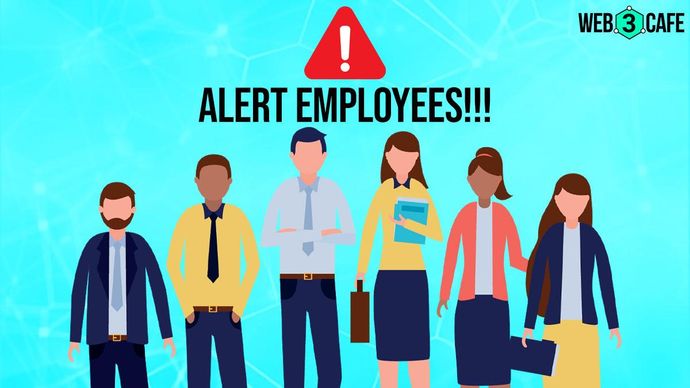Think before you plan to leave your job; AI knows if you’re thinking of quitting
By analysing existing data within a company's HR platform - such as salary levels, performance reviews, job roles, age, and ethnicity of employees, say reports.

Highlights
- AI predicts departure rates and timelines for employees
- The technology analyses HR platform data, including salary, performance, role, age, ethnicity
- Davies notes that the technology is most effective for organisations with over 250 staff members
If you’re thinking of quitting your workplace and assuming HR would not catch wind of the same, you my friend are in for a surprise! Turns out, there is now an AI tool that has the ability to detect whether an employee is about to quit.
According to a Stuff report, now AI can predict when you're going to leave an organisation, down to the expected rate and timeline. It's like having a psychic HR manager track your every move. So, while you're busy plotting your secret escape plan, just remember that AI is watching your every move.
In a groundbreaking development, Artificial Intelligence (AI) has taken on a major role in workforce management, going beyond traditional HR operations. Major companies are now employing AI technology for various HR functions, including records administration, payroll, recruiting, onboarding, and performance management.
However, recent revelations suggest that AI has advanced even further, providing new capabilities that can anticipate employees' career movements and potential resignations.
AI's ability to predict employee moves
Talent Propeller, a leading recruitment company, is at the forefront of utilising AI for workforce planning. According to Sharon Davies, the Managing Director of Talent Propeller, the AI system can provide detailed analysis and predictive reports that help organisations prevent setbacks caused by unexpected resignations of key employees.
According to a Stuff report, by analysing existing data within a company's HR platform - such as salary levels, performance reviews, job roles, age, and ethnicity of employees—AI customises algorithms to predict common patterns and triggers that lead to staff considering resignation.
The power of informed decision-making
With this revolutionary technology, companies gain invaluable insights into the likelihood of employees leaving their roles. For instance, AI can inform management that an employee, let's say ‘John, has a 50 percent chance of resigning within three months.
Armed with this knowledge, managers can take proactive action and decide on the best approach to handle the situation. The AI system also overlays data with predictions, suggesting actions that could reduce the risk of an employee leaving. For example, offering a promotion or a salary increase might increase the likelihood of retaining the employee for a longer period of time.
Privacy & future scope
Addressing concerns about privacy, Sharon Davies assures that the AI programme does not access employees' web browsing data. Instead, it relies on information already present within a company's HR system. She emphasises that the technology will not replace human resources staff but will significantly enhance their efficiency. By processing data much faster than human capabilities, AI empowers HR teams to make well-informed decisions promptly.
Furthermore, Davies notes that the technology is most effective for organisations with over 250 staff members. Large amounts of data are essential for building a clear and accurate picture of employee intentions, ensuring the AI system's optimal performance.
In conclusion, AI's newfound capability to predict employee career movements and resignations represents a game-changer in workforce planning. By leveraging AI insights, organisations can proactively address potential talent gaps, retain valuable employees, and make strategic decisions to ensure the continuity and success of their workforce.
So, employees, beware, and always remember that AI is ready to spill the beans on your sneaky plans!
